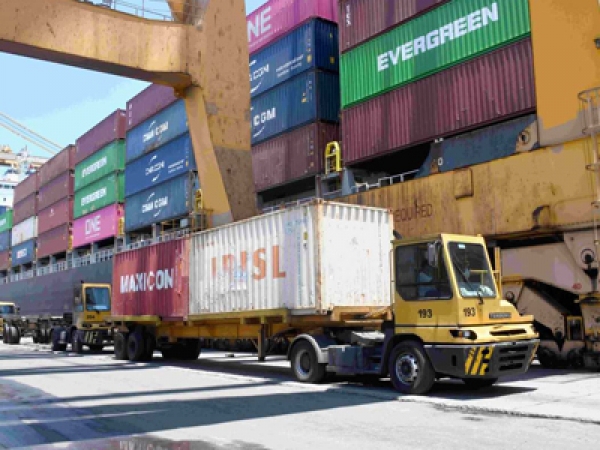BLOOMBERG: India’s Adani Group is the front-runner to develop Sri Lanka’s stalled East Container Terminal in Colombo port, people with knowledge of the matter said, helping billionaire Gautam Adani expand his port business overseas.
Adani Ports and Special Economic Zone Ltd. and a local partner received an in-principle approval to sign a deal with Sri Lanka Ports Authority, which will hold majority stake in
the project.
Details of the stake holding are still being worked out after a review of the project following labour protests that had stalled the deal before parliamentary elections in August, they said.
India’s foreign ministry and the Adani Group didn’t immediately respond to requests seeking comments.
Adani, India’s biggest ports and logistics company, had signed a preliminary agreement for the project last year.
Work on reviving the project, being jointly developed by Sri Lanka, India and Japan, comes at a time of rising regional tensions with China.
Both India and Japan are members of the informal Quad grouping that along with U.S. and Australia is seen as a counter to Beijing’s influence in the
Indo-Pacific region.
While the deal was agreed upon last year, President Gotabaya Rajapaksa had announced a review after protests by labour unions who feared foreign control over the strategic project, according to reports.
The island nation had earlier depended heavily on China for its infrastructure development in the first half of this decade, creating tensions with New Delhi.
The neighbours began rebuilding trade and investment ties before the coronavirus pandemic struck. In July, India extended a US$ 400 million currency swap facility to Colombo to assist with post-pandemic
economic recovery.
The two countries also discussed deferring of debt repayment during Prime Minister Mahinda Rajapaksa’s first high-level virtual meeting since his re-election with India’s Narendra Modi in September.
Sri Lanka - which emerged from a three-decade civil war in 2009 was known for taking Chinese loans to fund vast infrastructure projects, including ports and highways, that eventually became part of Beijing’s Belt and Road initiative.
Its appetite for Chinese cash waned after rising debt forced it to sell the Hambantota port back to China Merchants Port Holdings.
Meanwhile, the country’s Ports authority last week started operations at parts of the East Container Terminal that it has already built, said Chairman Daya Ratnayake.The agreement signed between Sri Lanka’s former government with India and Japan “still on,” he said. The Sri Lankan government “is in discussions on how to operationalise it.”










